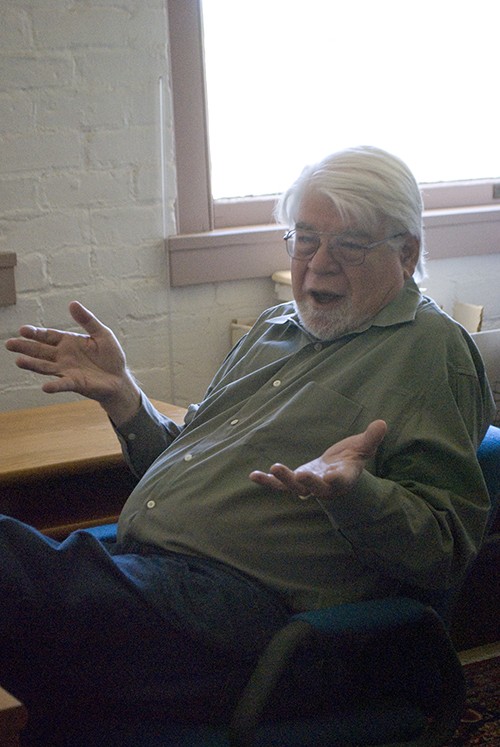Thomas Bever, research professor of linguistics, was one of two UA professors confirmed as regents’ professors by the Arizona Board of Regents this semester. The position is awarded to professors who are recognized nationally or internationally in their field. Bever served as head of the UA Department of Linguistics from 1998 to 2002 and is known for his contributions to the field of psycholinguistics. Bever will be inducted in the fall.
Daily Wildcat: When did you come to the UA, and what has your path been like since you arrived?
Bever: I came on sabbatical on 1994 to 1995, and I did something you’re not supposed to do. I stayed. You’re supposed to go back to your home institution, but I negotiated that. I stayed because there are two very strong research groups here relevant to my research. One is a group that studies spatial navigation. Mostly at that time they were studying it in rats. I did some work on that before, but the university I was at did not have this kind of strength in the area … I completed a study (that showed) rats have differences in what the left and the right hemisphere of the brain does that are, of course, not identical to human differences but have some formal similarities, so that was of interest. …
Now, the main focus of my research is the differences in language processing in people who do and do not have familial left handedness. You might say that’s a silly thing to be interested in, but the reason is we’re just beginning to being able to understand something about the genetics of left handedness, and this might give us some of the details of how the brain organizes itself as a function of the genetic structure an individual has during maturation.
What sparked your interest in language?
I had very supportive parents with respect to intellectual curiosity. I read in a Boy Scout book about various projects you could engage in, and one of things you could do was go out and dig in the yard. And if you’re quick about it, you can dig up an anthill.
So I did that literally in our backyard in Cambridge, Massachusetts. And you put it into a big jar … and you cover it so that the ants think they’re underground. They don’t know what happened — to them, this is like a cyclone. Fortunately, I managed to get the queen — that’s the most important thing. These are carpenter ants, and from their standpoint, the universe is bounded by this hard substance, so they build their tunnels right up against the glass. You take the cover off and watch them run around. … Then I watched them.
I got interested in their behavior. When they would meet, there’s this magic moment when the two antennae wiggle at each other and then they go on and do whatever they’re going to do. And it seemed pretty clear to me, it’s seems less clear now, but it seemed clear that they were communicating. And I got very interested in that. And that stuck with me. I was 11 years old at the time.
What’s the most exciting thing you’ve been a part of since coming to the UA?
My intellectual perspective starts with the concentrated, structural study of language. Language is a mishmash of individual facts like the meanings of particular words but also systematic study of syntactic structures.
There seem to be some universals of syntactic structures. … One of the things we’ve been working on is learning models of language acquisition as problem solving. We think of the language a child hears as a problem, a puzzle. It’s probably one of the hardest puzzles that’s universally learned. … It’s one of the hardest puzzles that kids have.
One of the things we’ve been doing is looking at language learning and language acquisition from that perspective, that to some extent language is an instance of the general excitement that people have when they solve a problem.









